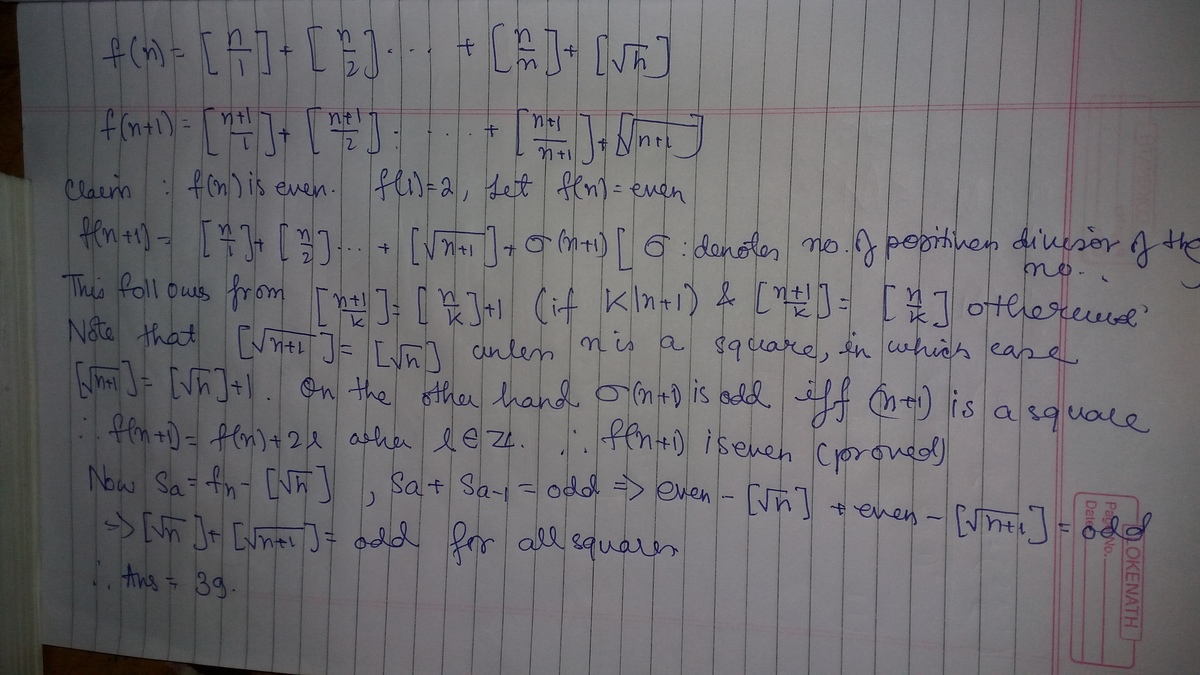Slightly odd
S n = i = 1 ∑ n ⌊ i n ⌋
S n is defined as of above, for all positive integers n . Determine the number of positive integers 1 < a < 1 6 1 6 for which the value of the expression
S a − 1 + S a
is an odd positive integer.
The answer is 39.
This section requires Javascript.
You are seeing this because something didn't load right. We suggest you, (a) try
refreshing the page, (b) enabling javascript if it is disabled on your browser and,
finally, (c)
loading the
non-javascript version of this page
. We're sorry about the hassle.
2 solutions
Can you please tell me how the summation of the number of divisors is equal to the summation of greatest integer function of [n / i]
Log in to reply
Think of it - how many numbers from 1 to n does a number i divide? Clearly, the answer is ⌊ i n ⌋ .

First note that S n denotes (equivalence follows by a simple double-counting argument) the sum of number of divisors of natural numbers up to the number n , i.e. S n = k = 1 ∑ n σ 0 ( k ) . Hence S a − 1 + S a will be odd iff σ 0 ( a ) is odd, i.e., a is a perfect square. Now there are 3 9 perfect squares in the given range.